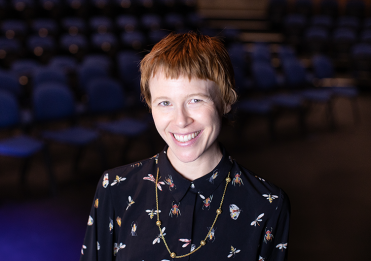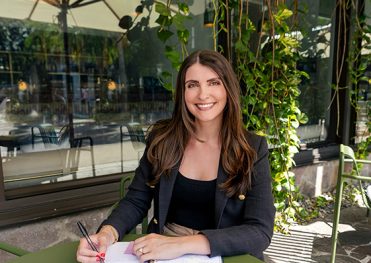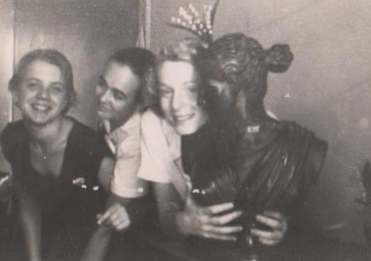As one of the joint founding student leaders of the Uralla Club, could you share with us your inspiration to start the Club?
After a family holiday to Uluru in 2013, I was confronted with the realisation of how little knowledge I had about the Traditional Custodians of this country. I felt confronted by the reality of colonisation and realised the ongoing oppression that occurs daily in our country. Initially, I felt immobilised by the enormity of it all but soon came to realise the best channel for this energy was within my own community at the time, BGGS. With the brain power and immense help from Josephine Ganko (2015), Ms Julie Hennessey, Ms Susan Garson, and Mrs Lynne Mungomery, we created the Uralla Club.
What have you continued to do in this space since graduating from BGGS?
After graduating, I completed a Bachelor of Arts at the University of Melbourne, majoring in Australian Indigenous Studies. I went on to work in the Indigenous education sector, and currently work at the Melbourne Indigenous Transition School while I complete a Master of Occupational Therapy.
As a past student and passionate advocate and ally for First Nations sovereignty and rights, how would you advise BGGS to continue to support Reconciliation? What additional steps or encouragement would you suggest?
I encourage all non-Indigenous staff members and students to seek out information and to be on a constant journey of education. Allyship is always a work in progress, but a great place to start is to learn the Traditional Owners of the land on which you live (the AIATSIS Map can be helpful here), as well as the name of the place that you live (i.e., Brisbane is Meanjin). It is the responsibility of non-Indigenous Australians to acknowledge the ongoing realities of colonisation and the roles we continue to play in this every day. I would recommend reading Dark Emu by Bruce Pascoe, or Marcia Langton’s Welcome to Country, as well as following NITV and ABC Indigenous on social media, as well as fashion brand Clothing the Gaps.
What would you do differently if you were to start the Uralla Club in 2023?
I reflect on the Uralla Club often and believe there is a lot I would do differently with the education and self-awareness I have now. In a thirst for knowledge and change, I spoke on topics that were not mine to speak about as a non-Indigenous Australian. These topics should have been spoken about by First Nations People living in Meanjin, and I hope that in the seven years, Uralla has been running since I graduated, these relationships have been forged and these voices are being amplified. I would also encourage the group to reflect on the name of the Club, Uralla, which is a word from the Anaiwan Nation meaning ceremonial meeting place on a hill, and explore other options from languages local to the Jagera and Turrbal land on which BGGS is situated.
These are just two examples of my own reflections of things I’d change now, but even if I no longer agree with all the choices I made along the way, I also do believe it’s best to try than do nothing at all. The Uralla Club was a starting point for myself and for BGGS, and one that has been a key learning for me over the past eight years. I believe its presence at BGGS is an important one and I am proud of the work the Club has achieved since I left.
In your studies, you also focus on youth mental health and are motivated by encouraging young people to live their lives meaningfully. Was this something you deliberately chose to pursue and advocate strongly for?
I am very excited by the scope Occupational Therapy (OT) offers in mental health. In its essence, OT is focused on helping people to live their lives meaningfully, which I think is an empowering lens when supporting people with mental illness. I love OT because it can help people see how they can live a full life with a mental health diagnosis.
I’m especially passionate about how sensory processing can be used in mental health to support people to manage their symptoms. The sensory system can be like magic, and understanding our sensory needs is something I think everyone should have the opportunity to explore.
What do you want to do after you graduate, and where do you see yourself in the next five years?
After I finish my studies at the end of the year, I am very excited to be a practicing Occupational Therapist and would like to work in the youth or adult mental health space. I’m not entirely sure where I see myself in five years, but one of the reasons OT appeals to me is the opportunity for variation and change, and I would love to work in regional or remote health.

Anna McArthur-Dowty




